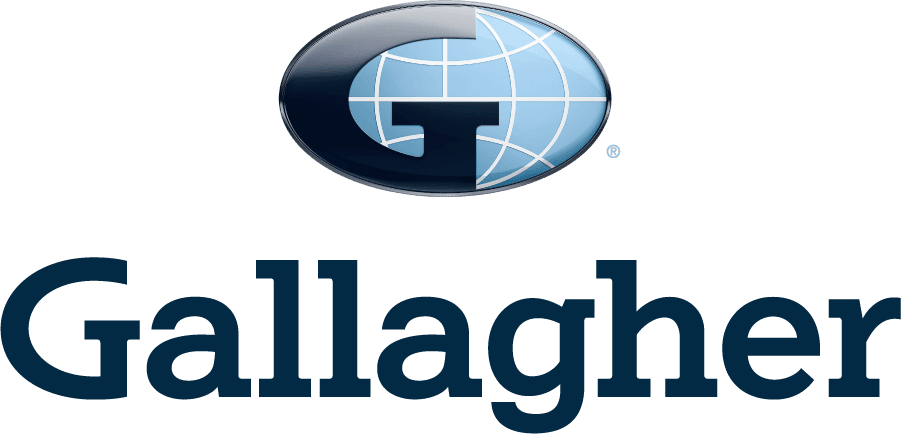December 2023
Table of Contents
- Reform of statutory pension insurance: Generation capital on the brink of extinction
- Case law I: Termination of employment as a prerequisite for disability pension
- Test he who bindeth himself forever – keep your eyes open when buying a company
- Case law II: Sick leave after termination of employment
- Parental allowance: income limit to fall only gradually
- EU Whistleblowing Directive
- On our own behalf
Reform of statutory pension insurance: Generation capital on the brink of extinction
The reform of the statutory pension insurance system envisaged by the governing coalition appears to have been postponed indefinitely. The original plan was to create a publicly administered fund to enable the introduction of partial funding of the statutory pension insurance scheme in order to prevent the pension level and contribution rate from spiraling out of control in the future.
This reform, also known as the “equity pension” or “generational capital”, will now come to nothing for the time being. The Federal Constitutional Court’s ruling on the debt brake, which declared the reallocation of emergency funds originally intended to combat the coronavirus to a climate and transformation fund to be inadmissible, has thrown the federal government’s entire budget planning for 2024 into disarray. Among other things, the introduction of intergenerational capital has also fallen victim to the 60 billion Euro in savings that this requires.
Therefore, those who do not rely solely on the statutory pension and its eventual reform are still well advised to take out additional security instead – for example, through a future-proof solution with the help of their employer and the EPF.
Case law I: Termination of employment as a prerequisite for disability pension
In the past, the Federal Labor Court has made several decisions on the question of whether an employee’s “departure” as a prerequisite for receiving a company disability pension should be based on the legal termination of the employment relationship, or whether a de facto departure in the sense of a suspension of both parties’ main benefit obligations after the end of the continued remuneration period is also sufficient.
In doing so, the court focused in particular on the meaning of the relevant clause, according to which simultaneous claims to remuneration and disability benefits should be excluded. However, such double claims are also excluded if the employment relationship is suspended, so that a legal termination of the employment relationship is irrelevant.
The Federal Labor Court departed from this line in its most recent decision on this topic (Federal Labor Court, judgment of October 10, 2023 – 3 AZR 250/22). Following a detailed interpretation of the pension scheme at issue, it came to the conclusion that the employer promising a company disability pension may in principle make the benefit in a pension scheme dependent on the employee drawing a statutory reduced earning capacity pension and also having legally left the employment relationship. In principle, it is not unreasonable for the beneficiary to make the payment of a company disability pension dependent on the approval of a statutory reduced earning capacity pension and the termination of the employment relationship. Also, taking into account the mutual interests, this does not exert any unreasonable pressure on the employee to terminate their employment relationship.
Test he who bindeth himself forever – keep your eyes open when buying a company
Company takeovers and business transfers are as much a part of business life as the annual tax return. Whether for strategic considerations or economic necessity – the reasons for acquiring a company can be many and varied.
What is often forgotten: A company acquisition often also triggers the assumption of pension obligations. This applies regardless of the size of the company to be acquired; even a low single-digit number of employees can have considerable financial consequences.
The company pension scheme should therefore be part of every due diligence process. In particular, the following questions should be clarified:
- What entitlements to company pension schemes exist?
- Are the entitlements fully funded?
- What balance sheet effects need to be taken into account?
- Are there indirect costs, e.g. for expert opinions, insolvency protection or administration?
- How time-consuming is the administration of the entitlements, especially for payroll?
- Should the entitlements be taken over and continued or restructured?
- Does it make sense to close the existing pension fund before the transfer of the business?
OUR TIP: Do not buy a company without first checking the existing pension entitlements. We will show you what obligations are involved and how you can manage them. This not only minimizes your risk, but also saves you money, as existing pension entitlements have an influence on the purchase price. Talk to us in advance of a planned company purchase.
Case law II: Sick leave after termination of employment
The Federal Labor Court recently issued another important decision – albeit not on company pension schemes – on the subject of sick leave (Federal Labor Court, judgment of December 13, 2023 – 5 AZR 137/23). The case concerned an employee who had taken sick leave immediately after being dismissed. He submitted corresponding certificates of incapacity for work that extended exactly up to the day on which he took up new employment with another employer.
The Federal Labor Court took this as an opportunity to reconsider its previous strict case law, according to which the evidential value of a submitted certificate of incapacity for work could never be shaken in practice. In cases such as the present one, where the suspicion of abuse is to a certain extent in the air, it is – according to the BAG – up to the employee to prove that he was actually unfit for work. Simply submitting a certificate of incapacity for work is not sufficient. The employer is therefore not obliged to continue to pay remuneration.
Parental: income limit to fall only gradually
The model: Parental allowance makes up for a lack of income when parents want to be there for their child after the birth and therefore interrupt or reduce their work. The parents are jointly entitled to a total of 14 months of basic parental allowance if both parents are involved in childcare and the parents lose income as a result. They are free to divide the months between them. One parent can claim a minimum of two and a maximum of twelve months for themselves. There are other models, such as Parental Allowance Plus, which can be claimed for twice as long as Basic Parental Allowance: one month of Basic Parental Allowance is equivalent to two months of Parental Allowance Plus. The amount of parental allowance depends on how much income the parent caring for the child had before the birth and whether income is lost after the birth. Parents with higher incomes receive 65 %, parents with lower incomes up to 100 % of their previous income. Depending on income, basic parental allowance is between EUR 300 and EUR 1,800 per month and parental allowance plus is between EUR 150 and EUR 900 per month. The minimum parental allowance is paid to all those who look after their child themselves after the birth and work a maximum of 32 hours a week.
According to the Federal Parental Allowance and Parental Leave Act (BEEG), parents with a taxable income of less than EUR 300,000 in the year before the birth receive parental allowance. For single parents, it must be less than EUR 250,000. In the search for potential savings for the federal budget, these caps are to be lowered. According to current plans, the income limit is to be gradually lowered. It is to remain at the current level of EUR 300,000 in taxable income until the end of March 2024. From April 1, 2024, couples with an annual taxable income of over EUR 200,000 will no longer receive parental allowance. One year later, from April 1, 2025, the limit is to fall again to EUR 175,000. For single parents, the previous limit of EUR 250,000 will continue to apply.
EU Whistleblowing Directive
The EU Whistleblowing Directive was transposed into national law by the Whistleblower Protection Act. The Whistleblower Protection Act, which came into force on July 2, 2023, creates a clear legal framework to ensure that whistleblowers are protected from retaliation and encourages companies to promote a culture of openness and transparency. In order to meet the requirements of the Whistleblower Protection Act, companies must take two main measures:
- Obligation to set up so-called internal reporting offices
- Which companies are affected?
- Companies with 50 or more employees: Applicable from 17.12.2023
- Companies with 250 or more employees: no later than when the Whistleblower Protection Act comes into force
- Companies from certain sectors, in particular companies from the financial services sector, see Section 12 (3) HinSchG: regardless of the number of employees, no later than when the Act comes into force
- Protection against reprisals: Companies must ensure that whistleblowers are protected against any reprisals (e.g. dismissal, transfer, negative assessment, intimidation). Employees, suppliers and future and former employees are entitled to submit information.
On our own behalf
Profion’s success story began over 25 years ago.
The idea was to offer employees of international multinationals attractive insured benefits.
It soon became clear that many of our clients also needed HR advice, which has been an integral part of our services for many years.
The latest development – supplementing insured benefits with uninsured benefits (Fringe) – has picked up speed in the last three years and it remains to be seen how this area will develop further.
Profion in 2023 – a few figures:
- 46 employees from over 10 nations
- Membership in 5 international broker networks
- +600 clients
- +80,000 beneficiaries
- +200 million euros in assets under management
- +20 % growth p.a. in all relevant key business figures
What will 2024 bring?
New technology: including an employee portal that allows our clients’ employees to access all key information about their benefits online at any time.
Improved product offerings: based on our in-house benchmarking, we are further developing our fringe packages and working on a new reinsurance concept for our insured benefits.
Further contacts: we are looking to exchange ideas more than ever – at networking events, specialist conferences, LinkedIn or via our website.
If you have any questions or ideas on how we can further expand or improve our services for you, please do not hesitate to contact us.
We wish you a peaceful Christmas season and all the best for the coming year,
Michael Stache, CSO and Mathias Thiel, COO








